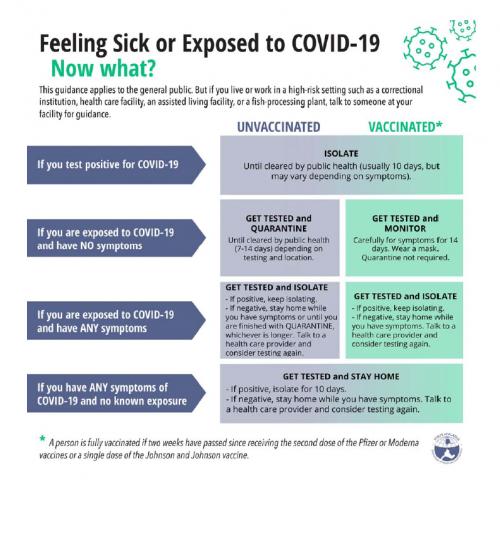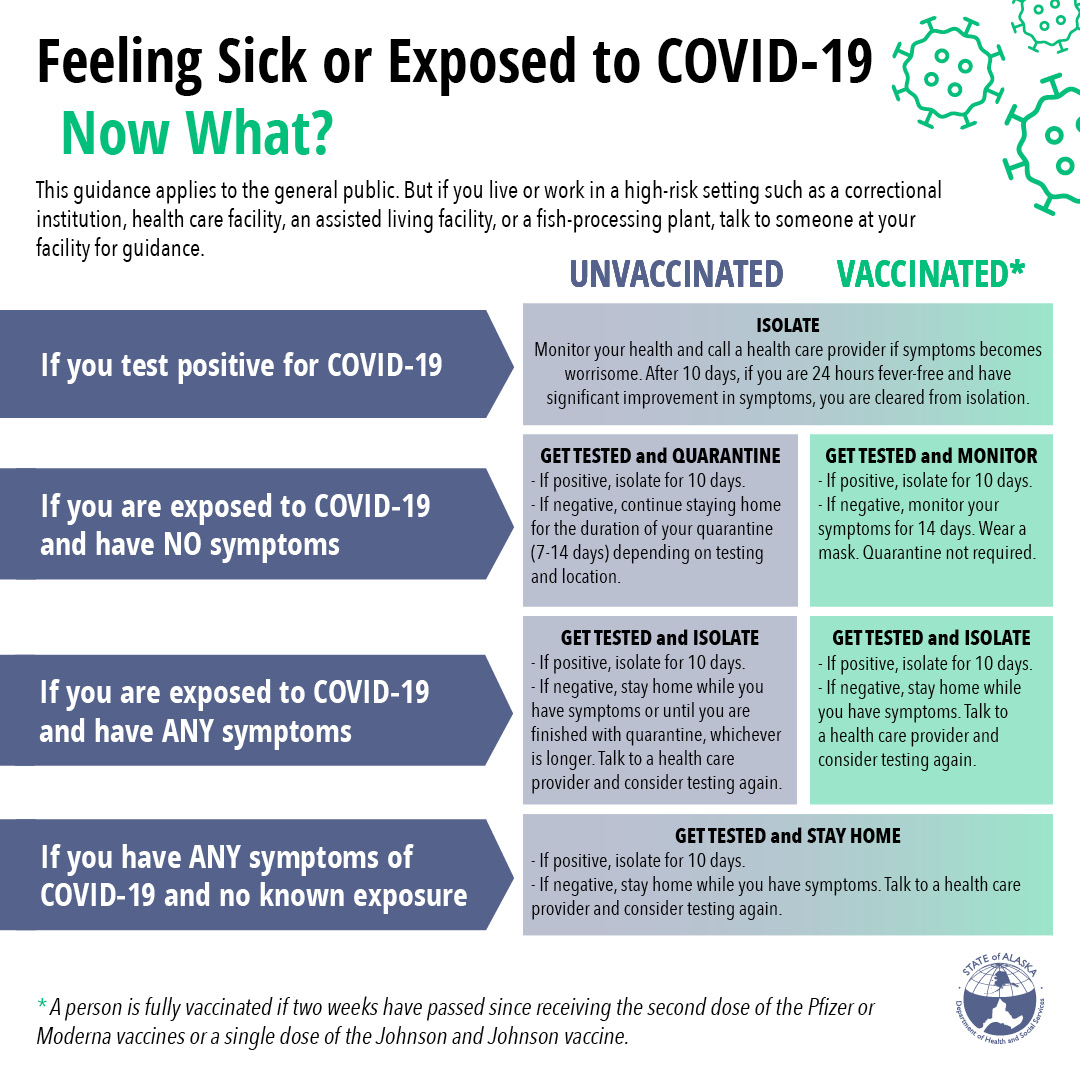How Many Days Can A Person Test Positive For Covid 19
While the incubation period for the virus can be as long as 14 days research suggests that people who are infected with SARS-CoV-2 the virus that causes the COVID-19 illness may become infectious to others several days before they start to feel ill. There may be exceptions to these timings so experts recommend 10 days of isolation after either testing positive for the virus being exposed to a person who has been infected with COVID-19 or developing any symptoms.

Covid 19 Virus Pandemic Updated 12 13 21 Haines Alaska
Double-jabbed people identified as a contact of someone with Covid-19 in England will be told to take a daily rapid test for seven days from Tuesday health officials said.

How many days can a person test positive for covid 19. He said on Friday that the CMD will do the final test within 72 hours to be. I am a close contact. It can take almost a week after exposure to COVID-19 to have a positive test result.
Even the unvaccinated can peace out at 10 days. Quarantine for at least 10 full days from last potential exposure. Isolate for at least 10 days after symptom onset and until fever free for at least 24 hours.
The more severe the clinical presentation the longer the duration of positivity with a median of 31. In Wuhan 36378 95 of patients having tested positive remained positive 30 days later and in some cases their positivity lasted as long as 83 days 8. 15 Ways to Help Someone Who Tests Positive for COVID-19 Why days 5 through 10 are the most important Days five through 10 are the.
Self-monitor daily for symptoms through Day 14. But weve known for many months that the COVID-19 vaccines train immune cells to more swiftly. If youve been in close contact with someone who has COVID-19 you may have to self-isolate for 10 full days.
There are two types of viral tests. Get tested again 5-7 days after the end of isolation for the most recently infected member of the household. A negative test between seven and 10 days of exposure is a better indicator Wells said but even then some people might not test positive until later.
Evidence suggests that testing tends to be less accurate within three days of exposure. A viral test tells you if you are infected with SARS-CoV-2 the virus that causes COVID-19. Any student or school personnel who exhibit symptoms of COVID-19 as defined by the CDC should stay home until they test negative for COVID-19 or for a.
Rapid tests can be performed in minutes and can include antigen and some NAATs. Isolate for at least 10 days after first positive test. According to the Zoe Covid Study incidence figures there are currently 83658 new daily symptomatic cases of Covid-19 in the UK on average based on test data from up to five days ago.
People who test positive for COVID-19 but do not develop symptoms in the 10 days following the test result are considered to be likely no longer contagious after those 10 days. If you test positive for COVID-19 anyone who was not in close contact with you does not need to restrict their movements. Patients who had already recovered from COVID-19 would sometimes inexplicably test positive on a PCR test weeks or even months later.
Early symptoms of Covid-19 vary widely. You might need to self-isolate for longer if you get symptoms while self-isolating or. You usually have to self-isolate for 10 full days if youve tested positive for coronavirus COVID-19.
Laboratory tests can take days to complete and include RT-PCR and other types of NAATs. For example people who live with your close contacts or friends of your close contacts. Viral tests use samples that come from your nose or mouth.
For someone with a. 24 hours before your positive COVID-19 test result - if you did not have symptoms of COVID-19. If you are fully vaccinated you should wait three to five days after exposure before getting a test.
While you could test positive for COVID-19 as soon as two days after exposure false negatives are common early in the 14-day incubation period. A person with COVID-19 is considered infectious starting 2 days before they developed symptoms or 2 days before the date of their positive test if they do not have symptoms. Someone with an asymptomatic COVID-19 case can get vaccinated as soon as.
Days 1 to 3. The agency states that someone with a mild or moderate case of COVID-19 stops being infectious no more than ten days after symptoms start. At 152 days the odds of continuing to shed the virus were less than 5.
I have symptoms of COVID-19. It should be noted he didnt exhibit any symptoms of COVID 19 and he still hasnt exhibited any he said. People who were not in close contact with you.
10 days have passed since your positive viral test If you begin to develop symptoms during isolation follow the if you have symptoms criteria above before getting vaccinated. If you are required to self-isolate your isolation period includes the date of your last contact with the person who had a positive test result for COVID-19 and the next 10 full days. You are going to have to isolate just as though you were not vaccinated for 10 days from the first symptoms that you recognize or from the time of your testkeeping yourself from being around.
It can start with a tickle in your throat a cough fever headache and feeling winded or just a little pressure in your chest. If that third-day test is positive. In the early months of the COVID-19 pandemic healthcare workers analyzing test results began noticing something strange.
These results suggest that shedding may occur for longer than 2 weeks. Rapid tests and laboratory tests.

Covid 19 Testing Healthcare Services In New York Multi Specialty Practices

Tested Positive For Covid 19 Or Someone In Your Home Has Read This Sa Corona Virus Online Portal

Alaska Department Of Health And Social Services

Covid 19 Guidance For Self Home Quarantine Arkansas Department Of Health
Posting Komentar untuk "How Many Days Can A Person Test Positive For Covid 19"